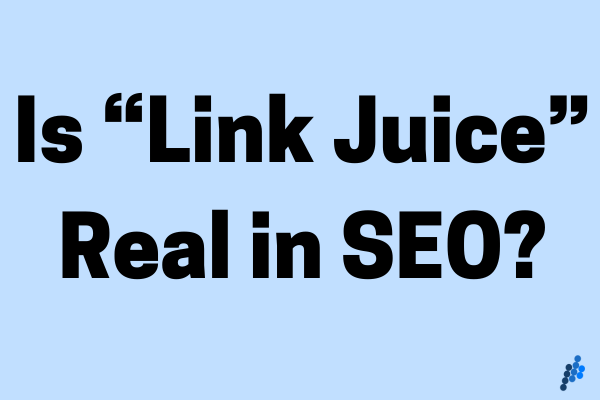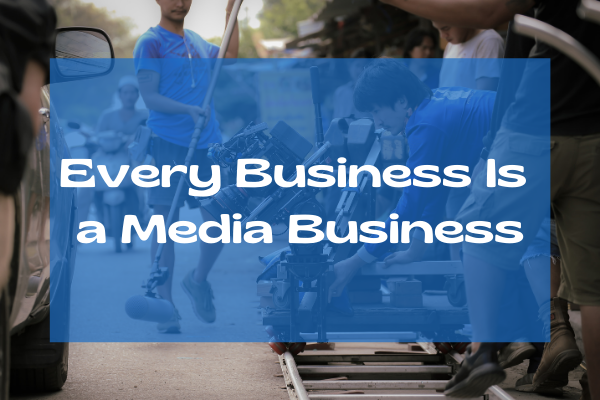One of the most controversial topics in SEO is “Link Juice”. While Google’s John Mueller outright dismissed the idea, most of the industry experts are not ready to believe him or agree with him.
What is Link Juice?
Link juice is a term used to explain a concept of value or authority passed by one web page to another where the first page has a link to the second page. Hyperlinks is the way by which this value is usually passed. Search engines like Google or Bing place some weight in this vote of confidence while determining whether or not to promote these pages up the ranking.
In this article we are not going in depth of how this Link Juice can actually be achieved, but this guide on Link Juice is one stop shop to learn everything about you need to know.
But is it real?
Now, while some experts deny existence of such “Juice” being passed through hyperlinks like John Mueller did, many others seem to be of the opinion that the name given to the concept is somewhat clickbait-y and sensational.
They prefer alternate terms such as “Link authority”, “Link Value” or “Link Equity” to describe the value being passed from page to page via hyperlinks. I personally like the term “Link Equity” because it aptly describes what is actually being shared between those two websites- “the Equity”
Like we always trust a person who has many people vouching for in the real world, any search engine will give more importance to the web pages that have more credibility than others. So we can safely say that the links that refer to your website are a vote of confidence that the content on your web page is worth reading for that specific topic.
So if we can’t outright deny the existence of “Link Equity”, we can at least safely say that trying to gain some of that equity at least won’t hurt the ranking of our web pages. Even if it has 1% of effect on the possibility of ranking higher in search results it’s worth paying attention to.
If you have time and resources to allocate in acquiring Link Equity, there are some things that you should know.
Not all links pass Link Equity
There are two types of links:
- Dofollow links: These are links that tell search engines to follow them and pass link juice to the linked page.
- Nofollow links: These are links that tell search engines not to follow them and not to pass link juice to the linked-to page.
Nofollow links are of no use even if they cause a lot of incoming traffic to your page because the search engine won’t register that a user has navigated to your page and thus no authority is passed to your page.
So if you are getting links from external websites, make sure they are Dofollow Links.
Not all links pass equal amount of Equity
The amount of link juice passed from one page to another through a hyperlink is determined by several factors like
- The type of link: Different types of links determine the amounts of link equity. For example, a dofollow link passes some link equity while a nofollow link doesn’t.
- The relevance of the linking page: If the linking page is relevant to the linked page, then the link is likely to pass more link equity with confidence.
- The authority of the linking page: If the linking page has a high PageRank score, then the link is likely to pass more link equity accordingly. Just like a reputed company refers to your business, your potential clients will hold you in higher regards.
- The number of outbound links on the linking page: The more outbound links a page has, the less link juice each individual link can pass. Simply put, if the page is referring to a lot of external pages, it may be set up for the only purpose of providing links to other pages, and that will be likely discouraged by search engines.
It’s not only about external links
While striving for external websites that link to your website, you must not ignore a valuable asset that you have totally in your control, internal links. Internal linking can help distribute link equity throughout your website, improving the overall authority and ranking potential of your site. Here are some best practices for internal linking:
- Link from high-authority pages: Link from pages with high PageRank scores to other pages on your website to pass more link equity.
- Use a logical linking structure: Make sure your internal links are organized in a logical way that makes it easy for users and search engines to navigate your website. Also submit a sitemap to platforms like GSC periodicaly.
- Use descriptive anchor text: Use descriptive and relevant anchor text to help search engines understand the context of the linked-to page. Search engines reward the link when the anchor text is relevant to the linked pages’ content.
How to attract great backlinks
Backlinks are those great juicy external links we’ve been talking about. Earning high-quality backlinks can significantly improve your website’s link juice and overall search engine ranking. Here are some strategies for earning backlinks:
- Create high-quality linkable content: Linkable content is means comprehensive, valuable and unique resources that are likely to be liked and recommended by other key players in your market. In-depth guides, unique survey results, or news articles are some of the types of content that is expected here.
- Reach out to other website owners: Reaching out to other website owners and bloggers in your industry to ask for links or guest posts can massively improve the number of backlinks you get. Don’t underestimate the power of a cold email.
- Use social media: Use social media to promote your content and build relationships with influencers in your industry who may link to your content. Social media gives you distribution like no other channel.
Conclusion
In conclusion, doesn’t matter if experts agree on it or not, it will not hurt to allocate some time and resources to focus on Link Equity to improve your page authority and overall websites SEO.



